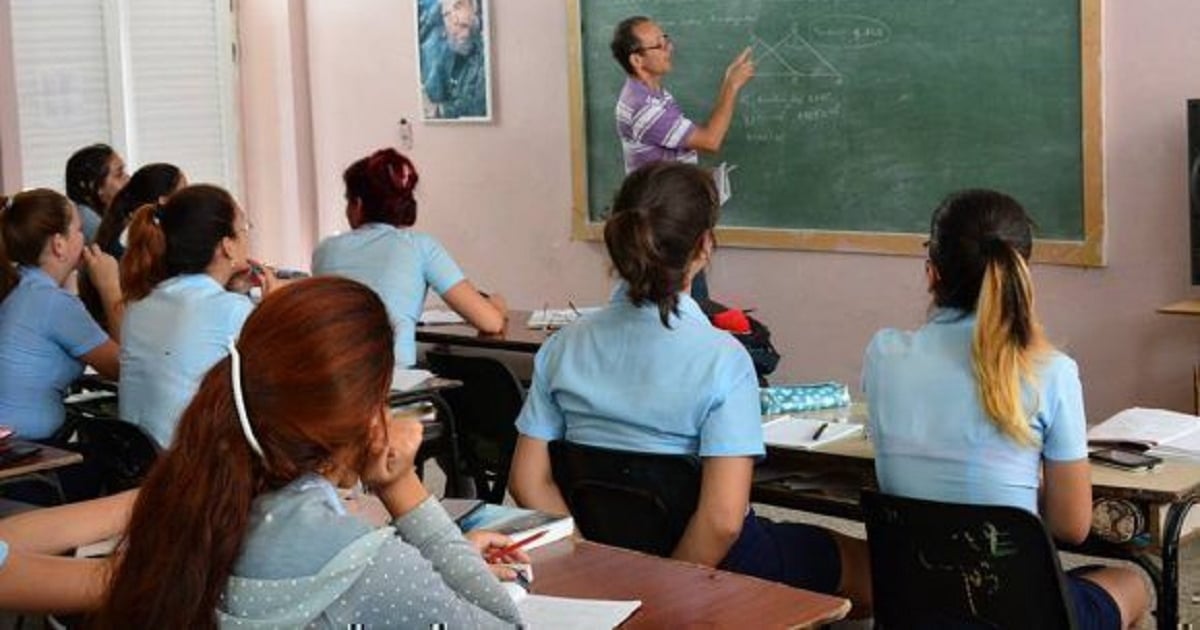In the eastern province of Guantánamo, officials have confirmed troubling reports of over a dozen children and teenagers engaging in drug use, even on school premises, or being linked to the possession and distribution of these substances. Major Alexander Millet Suárez, leading the prioritized sectors group at the National Anti-Drug Directorate, disclosed that investigations are ongoing into youths involved with narcotics, including eight minors and two older teenagers, aged 16 and 17, who were admitted to the Pediatric Hospital Pedro A. Pérez after testing positive for drug intoxication.
Additionally, four other minors were monitored: two for drug consumption, one for possession, and another for trafficking, detailed in a report by the provincial newspaper Venceremos. According to Millet, adults who supplied these substances to minors are already serving sentences as prescribed by the law. Police operations led to action against 64 individuals, with 48 facing charges and placed under provisional detention.
Moraima Velázquez Romero, the chief prosecutor in the province, emphasized that drug trafficking offenses could lead to sentences of up to 30 years or life imprisonment. She highlighted that prevention and enforcement against drug consumption and trafficking are top priorities for the nation, advocating for strict legal measures against such activities that jeopardize family stability and national security.
Impacts on Education
In an alarming incident reported by a school director named Andrés, two students were caught under the influence of drugs within the school, though their age and grade were not specified. During a routine midday check, Andrés noticed two girls emerging suspiciously from the basement, one discarding what appeared to be a cigarette. Upon closer inspection, Andrés realized the situation was more dangerous than initially assumed.
"Those were challenging hours; one of the student's lives was at risk," Andrés recounted, noting that while drug use in Cuban schools is not common, this event underscores that the nation is not immune to such issues.
Antonio Tamayo Romero, the deputy director of Education in Guantánamo, confirmed that all schools enforce Ministerial Resolution 15/2019 to discourage drug use among children, adolescents, and young adults. However, he acknowledged that incidents of drug consumption or possession in schools highlight the need for improved prevention and timely intervention to avoid tragic outcomes.
Anti-Drug Operations in Guantánamo
Throughout 2024, law enforcement in Guantánamo dismantled seven criminal networks involved in drug trafficking through operations across maritime, aerial, mountainous, and land checkpoints, seizing a total of 275 kilograms of illegal substances, as reported by Venceremos. Additionally, 904 marijuana plants were seized from four illegal cultivation sites, with Guantánamo and Manuel Tames municipalities showing the highest activity, Millet noted.
The year concluded with 13 international drug trafficking incidents on coastal areas like Baracoa and Caimanera, where authorities intercepted eight boat landings and discovered five accidental finds. This resulted in the confiscation of 48 drug packages and two damaged fragments, likely due to maritime or reef conditions, totaling 171.15 kilograms of marijuana and 1.10 kilograms of cocaine, the official reported.
Government Response and Challenges
The Cuban government has admitted to a concerning rise in drug use within educational institutions, attributing it to increased availability of narcotics on the island. As part of their "zero tolerance" policy against drug trafficking, authorities conduct high-profile trials to deter such activities. Despite the government's anti-drug campaign, experts and citizens criticize the institutional responses as being more reactive than preventive, and insufficiently effective in curbing a rapidly growing problem, particularly among the youth.
The spread of the synthetic cannabinoid known as "the chemical," a highly addictive drug, is particularly worrisome due to its prevalence in vulnerable communities, where clandestine sales points thrive despite police efforts. Millet highlighted that "the chemical" is sold on the black market for 150 to 200 pesos, making it more accessible to young people, causing severe intoxications and posing significant danger.
This week, the Cuban government launched a Prevention and Drug Confrontation Exercise, including discussions in neighborhoods, communities, and workplaces. According to the official newspaper Granma, these debates, running until June 30, will use a Communist Party of Cuba (PCC) document encouraging awareness and responsibility. The regime also announced the creation of a National Drug Observatory, managed by the Ministry of Justice, which will feature an Early Warning System to monitor new substances and the phenomenon of so-called emerging drugs. It aims to strengthen collaborations with international experts for research in this field.
Drug Challenges in Guantánamo
What measures are being taken to combat drug trafficking in Guantánamo?
Authorities are conducting extensive operations across maritime, aerial, and land checkpoints, dismantling drug networks and seizing illegal substances. The government enforces strict legal measures and conducts high-profile trials to deter drug-related activities.
How is the Cuban government addressing drug use in schools?
The government promotes anti-drug policies in schools through Ministerial Resolution 15/2019 and conducts awareness programs to discourage drug use among students. However, recent incidents highlight the need for enhanced prevention and intervention strategies.
What is "the chemical," and why is it concerning?
"The chemical" is a synthetic cannabinoid that is highly addictive and prevalent in vulnerable communities. It is sold at low prices on the black market, making it accessible to young people, and poses serious health risks due to its potential for causing severe intoxications.
